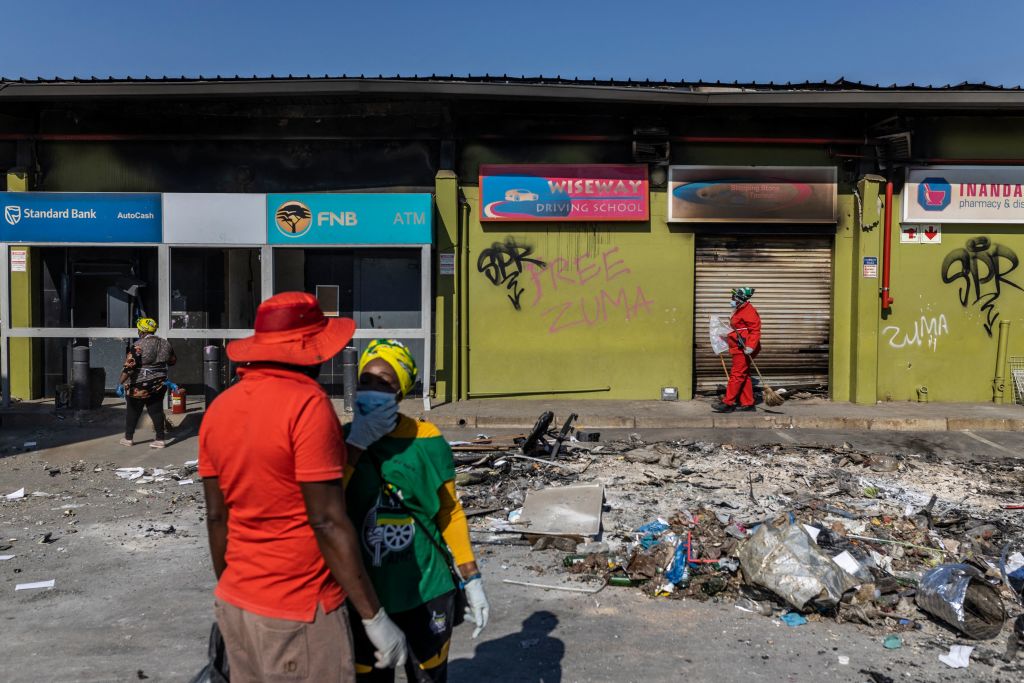In South Africa, Grassroots Efforts Aim to Quell Youth-Based Crime
ADF STAFF
Throughout 2023, the South African criminal group known as the West Gang terrorized the town of Inanda, just north of Durban.
The group allegedly is responsible for a spate of robberies and more than 50 murders, including the killing of a police officer, neighborhood watch patrollers and a community policing forum member.
A resident told Eyewitness News about an attack involving the gang, which she said was composed of teenagers.
“Earlier in October, some boys came here,” she said. “The first house they entered was a small tuck shop that sold food. The owner of the shop was home with his wife. They demanded money. They pointed a gun at him and beat him up. He gave them all the money he had. They shot this man in his leg, in front of his wife. This traumatized her so much.”
Youth-related crime — and crimes against young people — is rife throughout the country. Analysts involved in a recent panel discussion led by the Institute for Security Studies (ISS), argued that bottom-up approaches are the best way to prevent young people from embarking on a life of crime.
“These are interventions that engage with the community at a grassroots level,” said Jody van der Heyde, Inspire working group global coordinator at ISS. “These interventions are grounded or embedded in the communities that they are implemented in. This is really important because in doing so they are deliberately tailored and responsive to the specific needs of the community.”
A couple of projects are working to implement violence-reduction programs in several communities.
In Durban, Lindokuhle Mkhize, a project manager with the Wildlife and Environment Society of South Africa focuses on the society’s Childsafe Project, works to get children off the streets and offer them better opportunities so that they don’t turn to crime. It also creates safe spaces for children exposed to abuse, violence and drugs in Durban’s beach areas.
The program benefits marginalized and vulnerable children and their families through reunifications and parental training.
“It helps [children] move away from drugs, away from the sexual violence that happens at the beach and many other things that kids or people who live on the streets are subjected to — many different things that shouldn’t even be happening today,” Mkhize said during the ISS discussion.
The program also involves traders at local beaches who notice all manner of crime that affects their businesses and tourism.
“Let’s not look at these people and children [on the streets] as a menace to society, but [instead ask them] what went wrong?” Mkhize said. “How do we help you in terms of getting back to your home and being a child again? Once they are on the street, automatically a child becomes an adult. They need to fend for themselves, they need to find food. They need to fend off other adults who want different things from them.”
Barbara Holtmann, technical director at Fixed Africa, an organization concerned with urban safety and development, has overseen a case study in the Eastern Cape communities of Hoekwil and Touwsranten, where residents started a community dialogue due to high levels of violence.
“It’s a formal methodology in which people choose to have a particular focus for their conversation,” Holtmann said during the ISS discussion, adding that she believes compassion is key in addressing violence.
The Hoekwil and Touwsranten groups meet once a month for 90 minutes to discuss safety and prosperity issues. As of December 2023, there have been 21 community dialogues, which are conducted in English and Afrikaans.
Recognizable community members convene the talks, such as military officials, police officers, drug and alcohol abuse specialists, municipal workers, parents, and residents.
“In Touwsranten, there was a very high level of interpersonal violence, and I love the way they addressed it, which was to explore what violence means to the adults in the community,” Holtmann said. “They’re trying to avert violence against children, but also being able to stop children from thinking that violence is the way to go.”


Comments are closed.